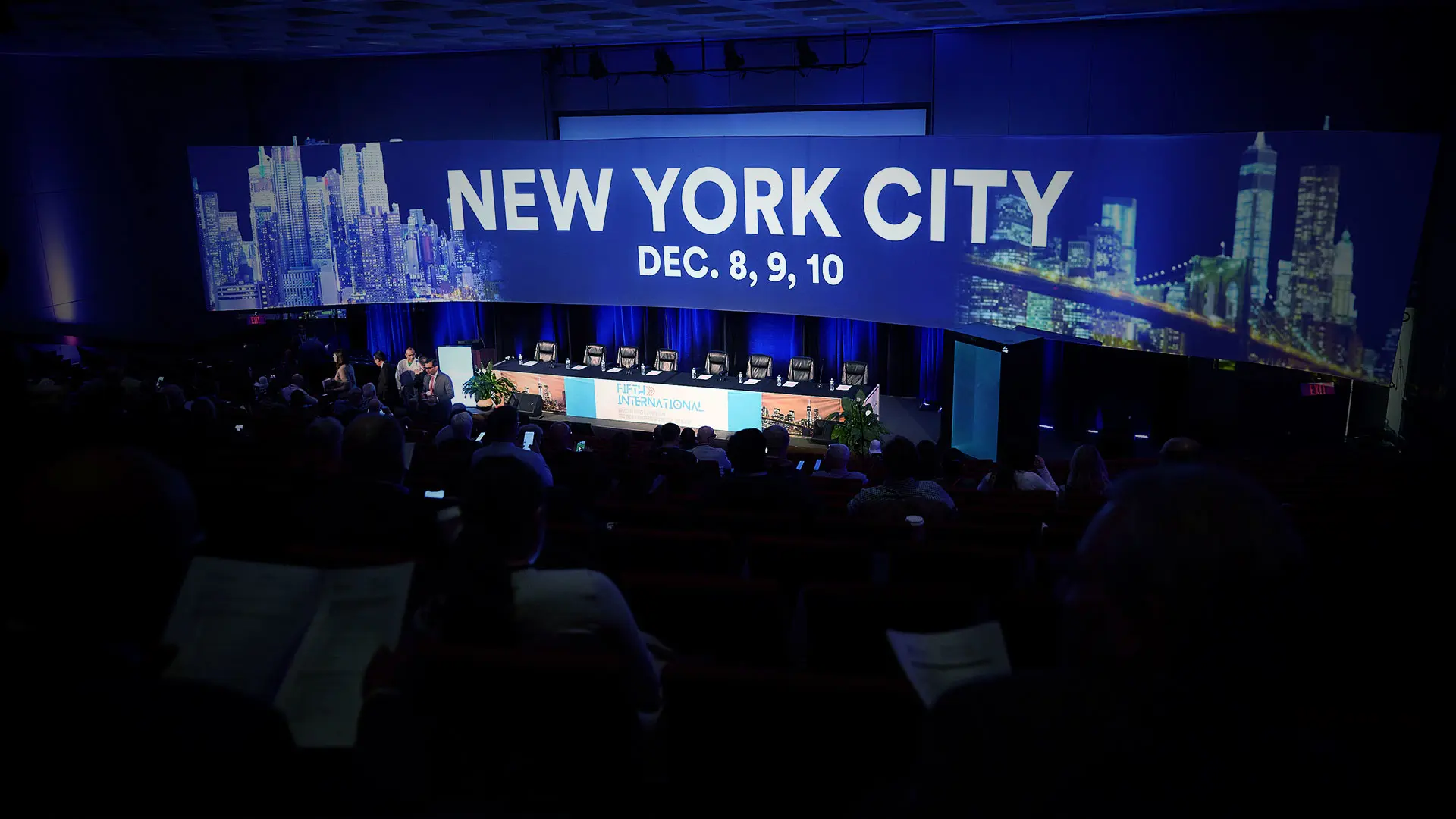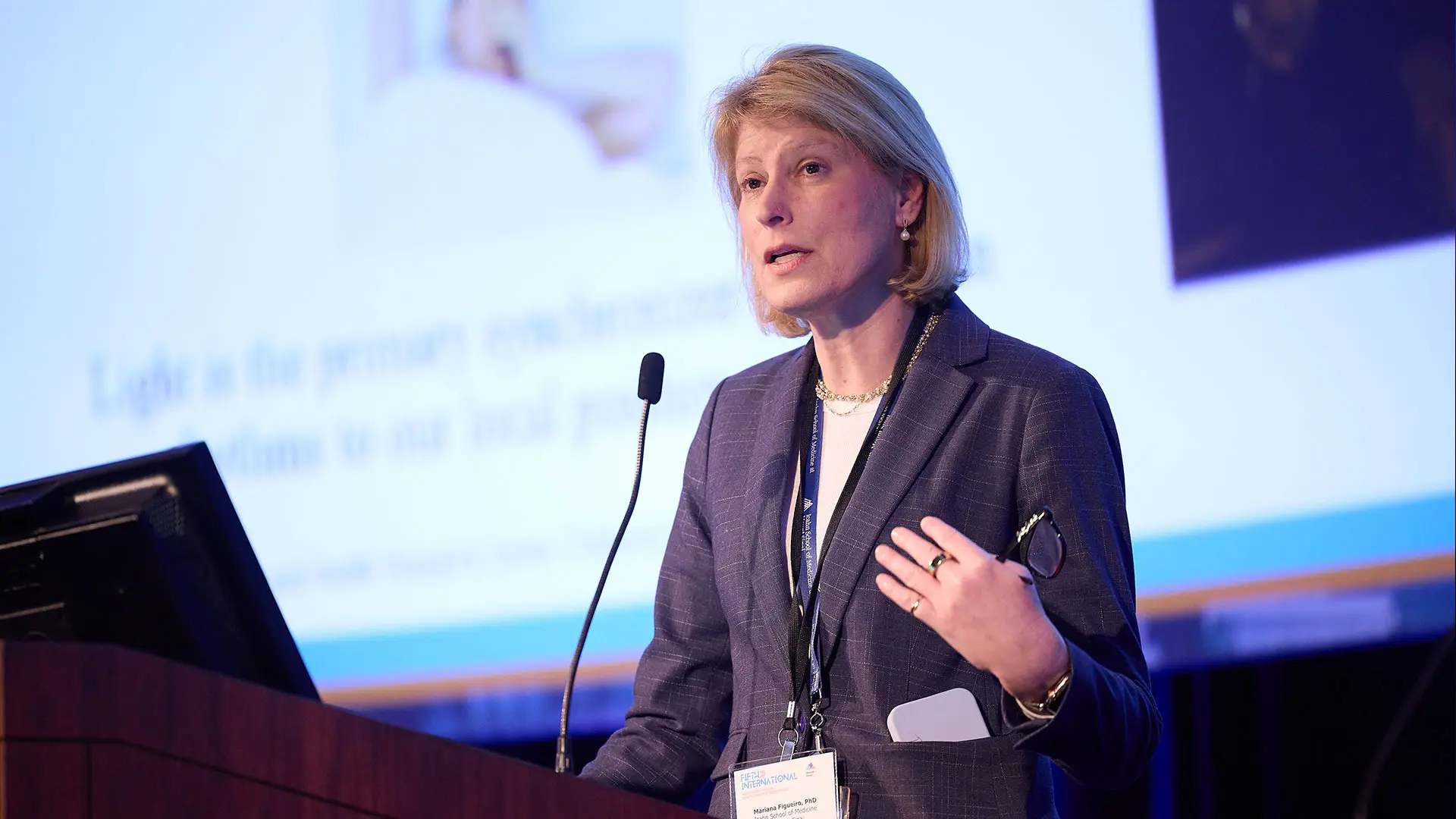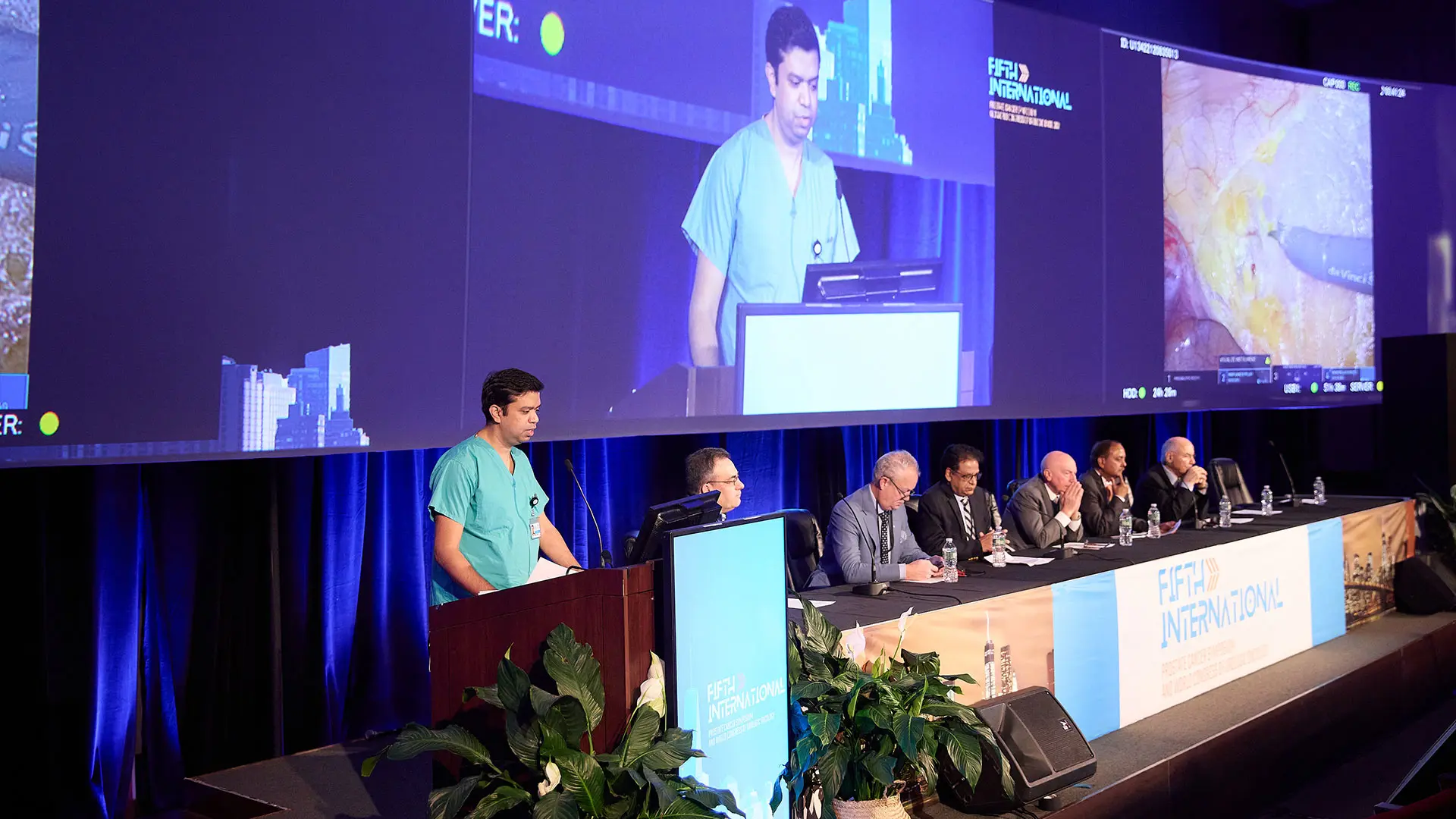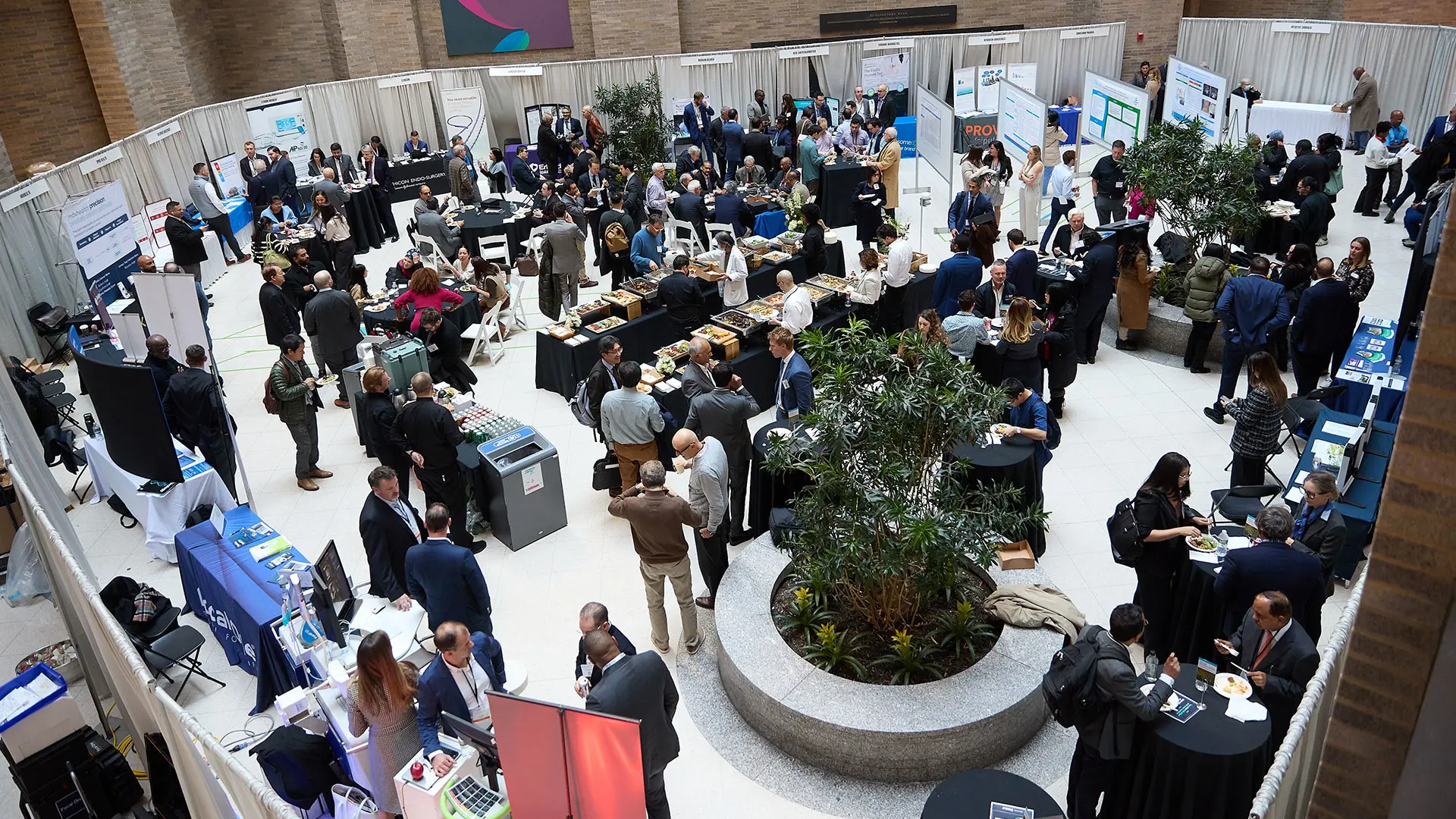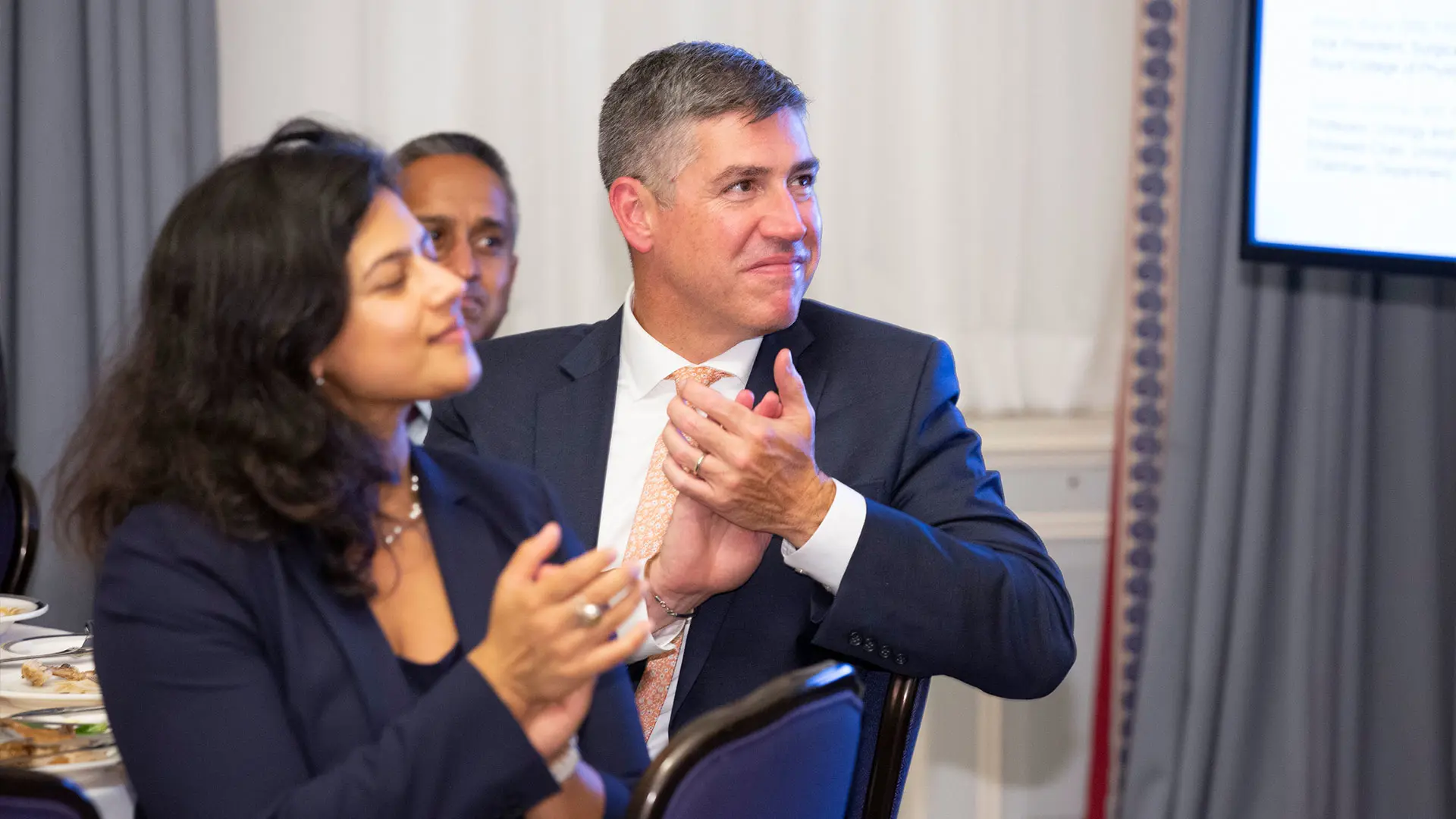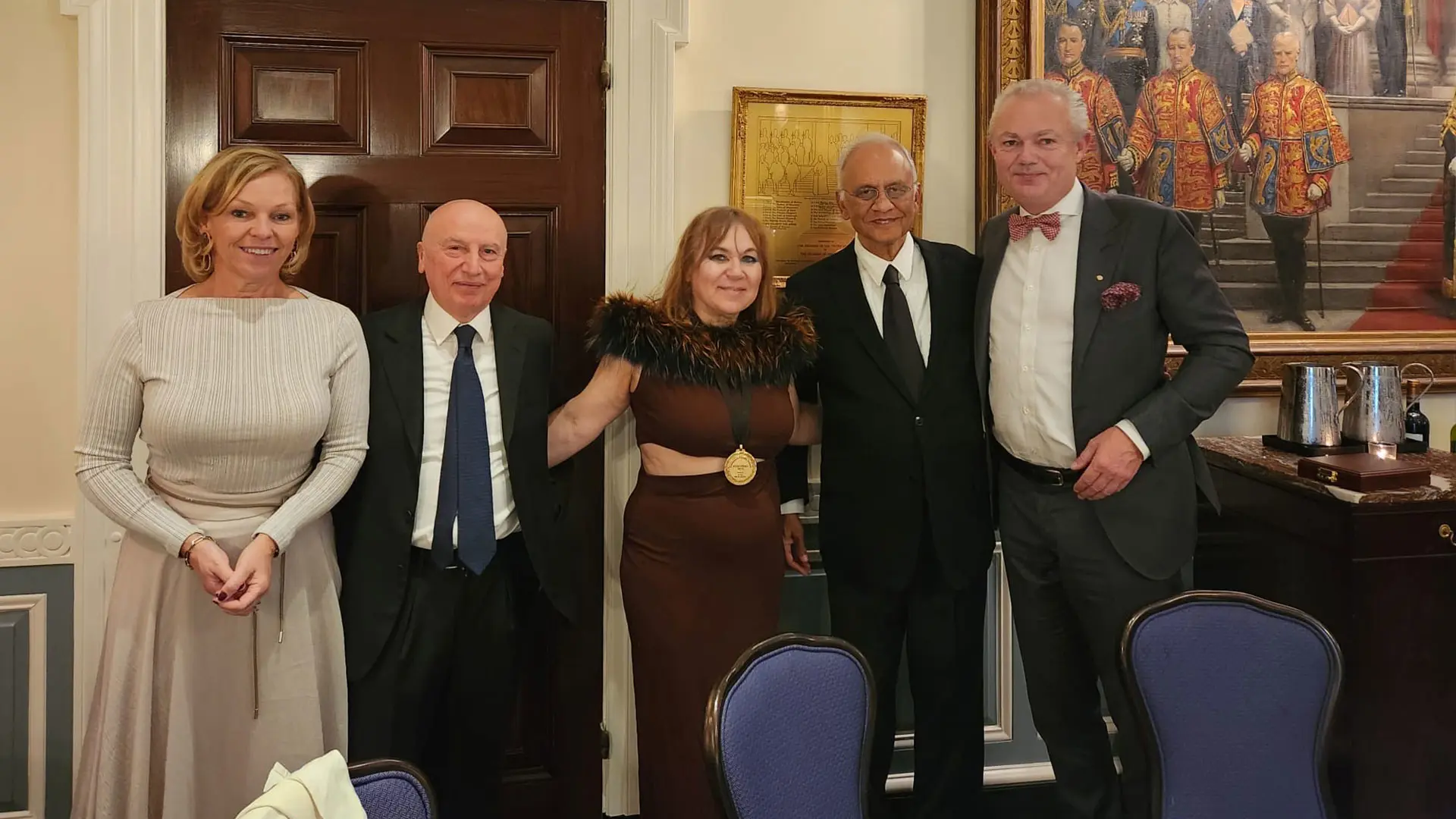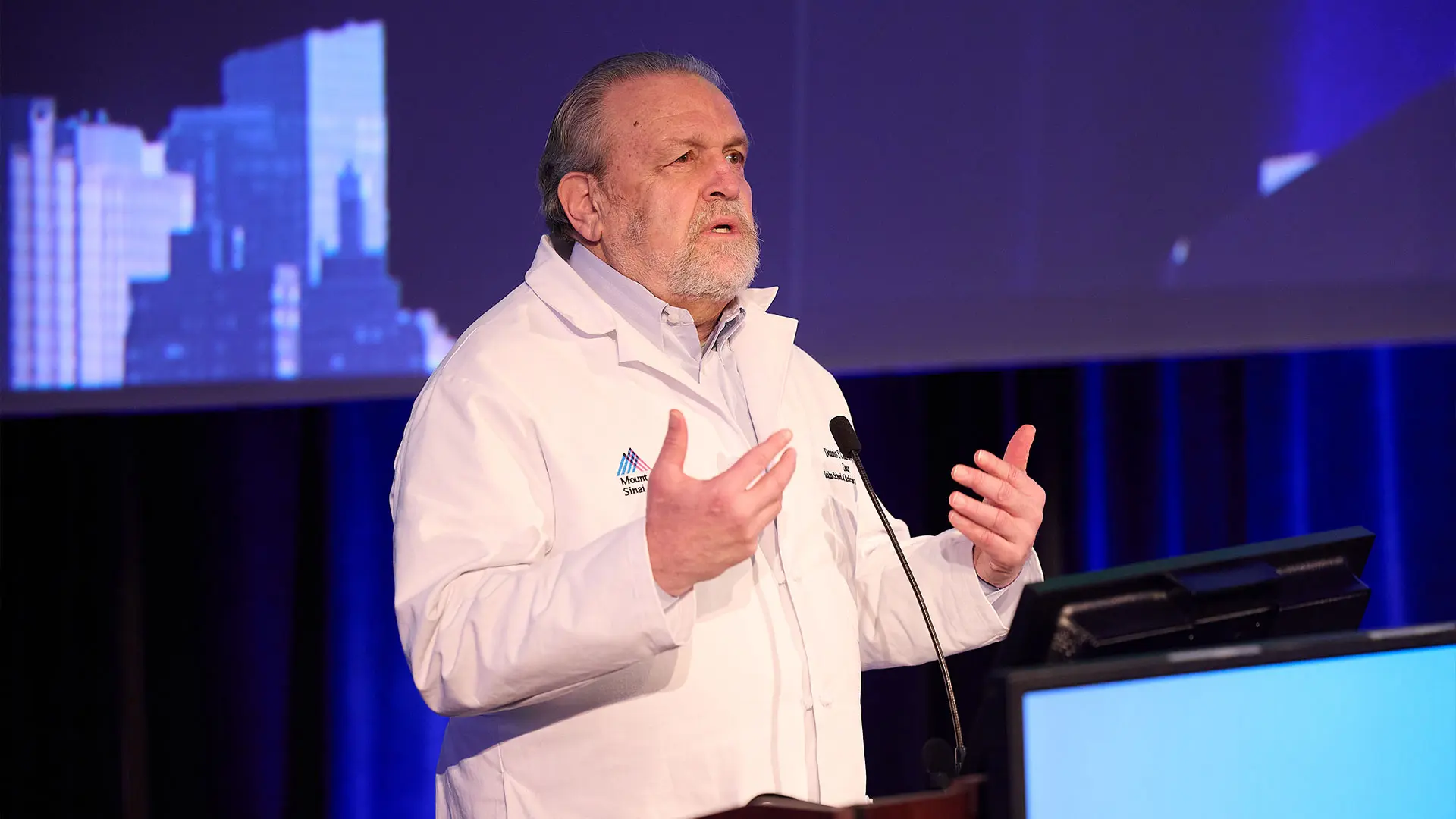The Fifth International Prostate Cancer Symposium and World Congress of Urologic Oncology showcased groundbreaking research and clinical practices poised to redefine cancer care and impact patient outcomes worldwide.
Hosted by the Icahn School of Medicine at Mount Sinai, the event is considered a cornerstone in prostate, kidney, and bladder cancer. The three-day event in December drew more than 500 registrants, including 90 of the world's most renowned experts from more than 20 countries.
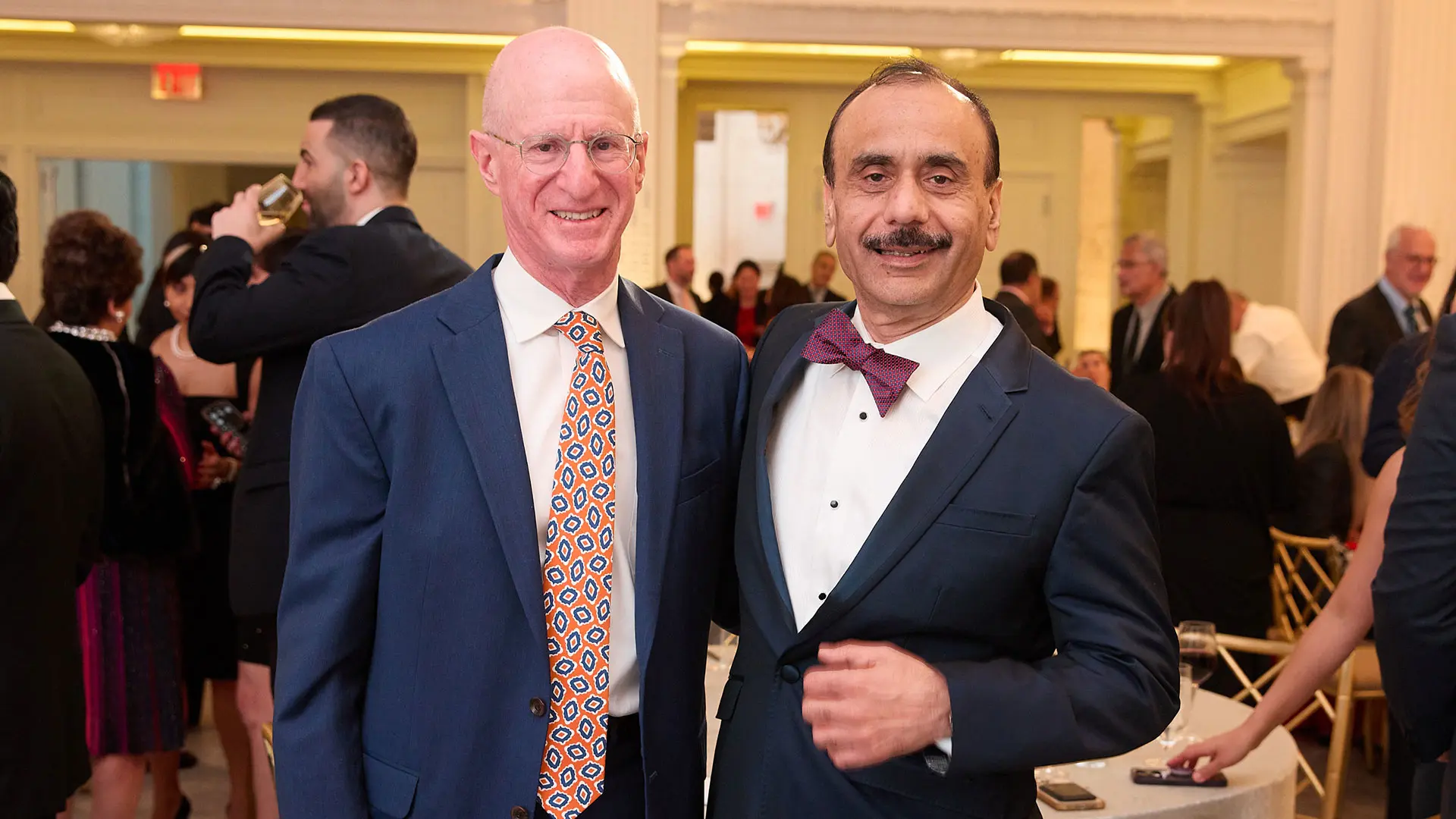
At the gala, James Tisch, left, Co-Chairman of the Boards of Trustees of the Mount Sinai Health System, and Ash Tewari, MBBS, MCh, FRCS (Hon.)
A significant highlight was the presentation of the first Golden Robot Surgical Award for Excellence in Surgical Innovations for Cancer Patients to Ash Tewari, MBBS, MCh, FRCS (Hon.), Chair of the Milton and Carroll Petrie Department of Urology at Icahn Mount Sinai. This award was presented by Merryl and James Tisch, Co-Chairman of the Boards of Trustees of the Mount Sinai Health System, during a gala at the Pierre Hotel in New York. The award recognizes a significant leap in medical innovation and patient care.
Also attending were Brendan Carr, MD, MA, MS, whose appointment as Chief Executive Officer of the Mount Sinai Health System would become effective in January, who opened the gala event, and Margaret Pastuszko, President and Chief Operating Officer.
Watch a video titled “A Decade of Excellence: Dr. Ash Tewari’s 10-Year Voyage at the Department of Urology.”
Three Mount Sinai leaders opened the symposium: Dr. Tewari, Dennis S. Charney, MD, Anne and Joel Ehrenkranz Dean of Icahn Mount Sinai, and David Reich, MD, President, The Mount Sinai Hospital and Mount Sinai Queens. Their insightful opening remarks set the tone for what was to be an intensive three-day exploration of the latest advancements and challenges in urologic cancer care.
One of the symposium's highlights was an engaging presentation by best-selling author Deepak Chopra, MD, a pioneer in integrative medicine and a prolific writer, titled "Major Breakthroughs in the Science of Healing." Dr. Chopra's talk focused on integrating AI with the holistic interplay of mind, body, and spirit in medical science.
Reflecting on the symposium's impact, Dr. Tewari noted, "This gathering served as a dynamic platform for exploring the various facets of urology and robotic surgery. The exchange of ideas and insights among our peers underscores our collective capacity to shape the future of urologic oncology significantly."
The event also highlighted technological innovation in medical communication and education, featuring state-of-the-art holographic presentations by Declan Murphy, MB, BCh, BaO, Consultant Urologist, Peter MacCallum Cancer Centre, Melbourne, Australia, and Alberto Breda, MD, PhD, Chief, Uro-Oncology Unit and Kidney Transplant Surgical Program at Fundació Puigvert in Barcelona.
Additionally, a stimulating debate between Mount Sinai radiation oncologist Richard Stock, MD, and robotic surgery pioneer Mani Menon, MD, Professor and Chief of Strategy and Innovation at the Department of Urology, offered contrasting perspectives on treating intermediate-risk prostate cancer.
Ketan Badani, MD, the Department’s Vice Chair and Director of Robotic Operations, and other renowned speakers enriched the symposium with their expertise on modern surgical techniques in kidney cancer, fostering a collaborative learning culture.
The symposium's final day, led by Peter Wiklund, MD, PhD, Professor and Director of the Bladder Cancer Program, showcased advanced surgical procedures and a panel discussion with Reza Mehrazin, MD, Associate Professor, and John Sfakianos, MD, Assistant Professor, providing deeper insights into bladder cancer management.
Interactive sessions, including live surgical demonstrations, 3D video presentations, and hands-on experiences in simulation laboratories, underscored the event's commitment to innovative and experiential learning.
